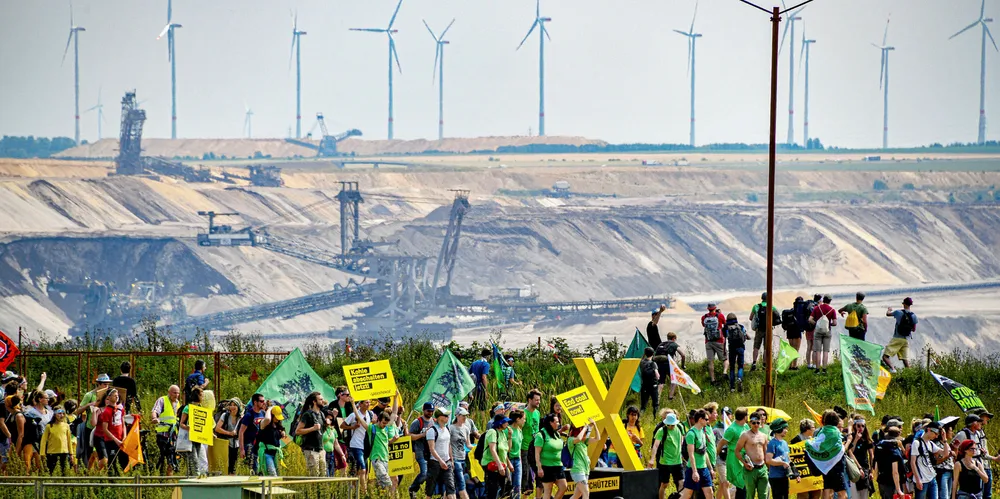RWE lignite mining blocked amid doubts on 2038 German exit date
Tens of thousands protest open pit mining near Aachen while Bavarian state premier demands coal exit by 2030

Tens of thousands protest open pit mining near Aachen while Bavarian state premier demands coal exit by 2030
